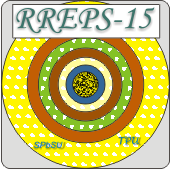Speaker
Anton Babaev
Description
Recently it was shown that charged particles motion in the field of standing electromagnetic wave can undergo the features similar to the particles channeling in crystals [1]. While a charged particle enters the channels formed by electromagnetic standing waves at a small angle to the node (anti-node) planes its motion represents namely the oscillations between two neighboring planes. The phenomenon is mostly known as channeling in a lattice of the standing waves. Obviously, this effect can be used to manage beams in accelerator physics, more general, for the beam shaping with the properties which one desires [2]. Additionally to the feasibility of beam shaping by standing waves for electron, positron and muon bunches, the report illustrates the code ability for simulating fine peculiarities of real beam of various spatial and angular distributions that interacts with the complex structure of laser intersection area.
The work is supported by the RF President Grant MK-5202.2015.2 and by the Ministry of Education and Science of RF in the frames of Competitiveness Growth Program of NRNU MEPhI, Agreement 02.A03.21.0005.
[1] S.B. Dabagov et al, *Phys. Rev. ST Accel Beams* **18**, 064002 (2015).
[2] E. Hemsing et al, *Rev. Mod. Phys.* **86**, 897 (2014).
Author
Co-author
Sultan Dabagov
(INFN)
